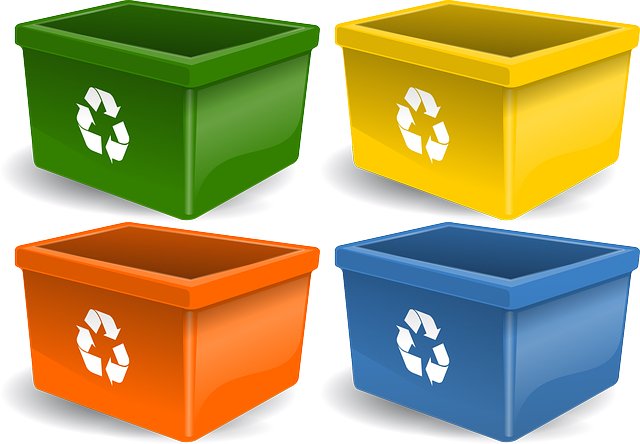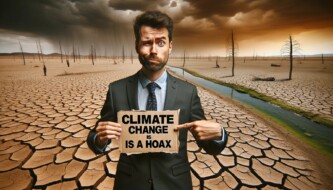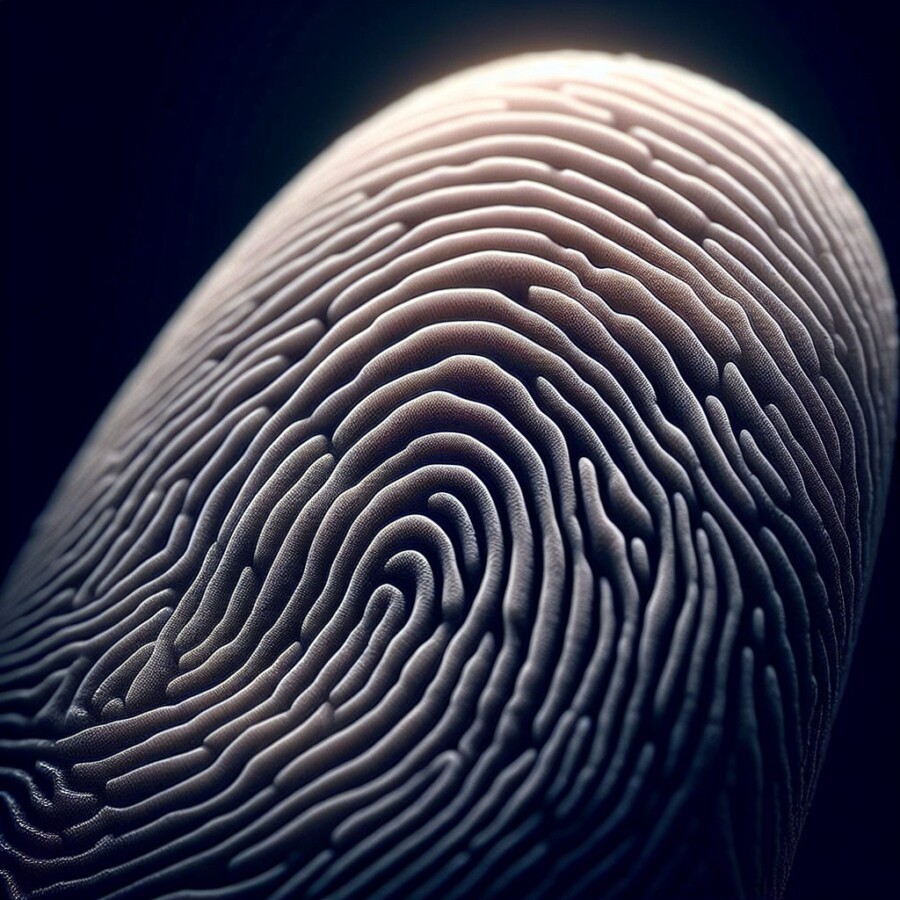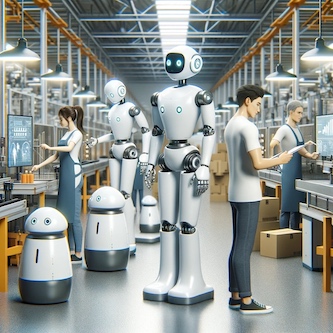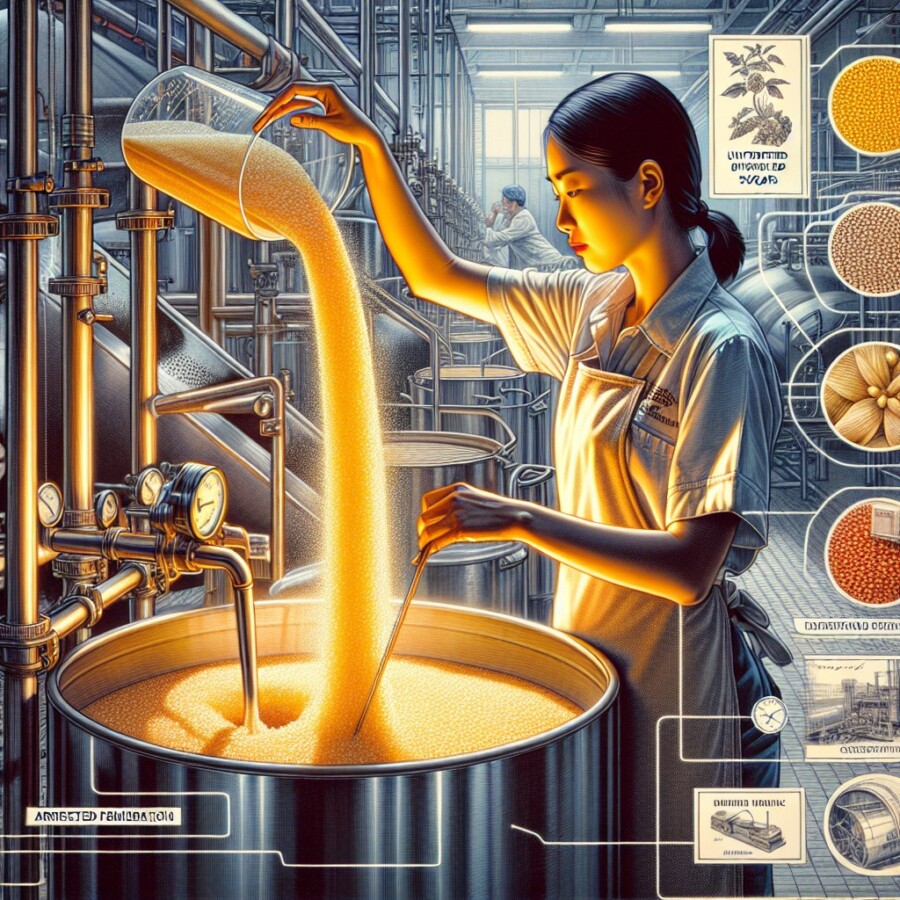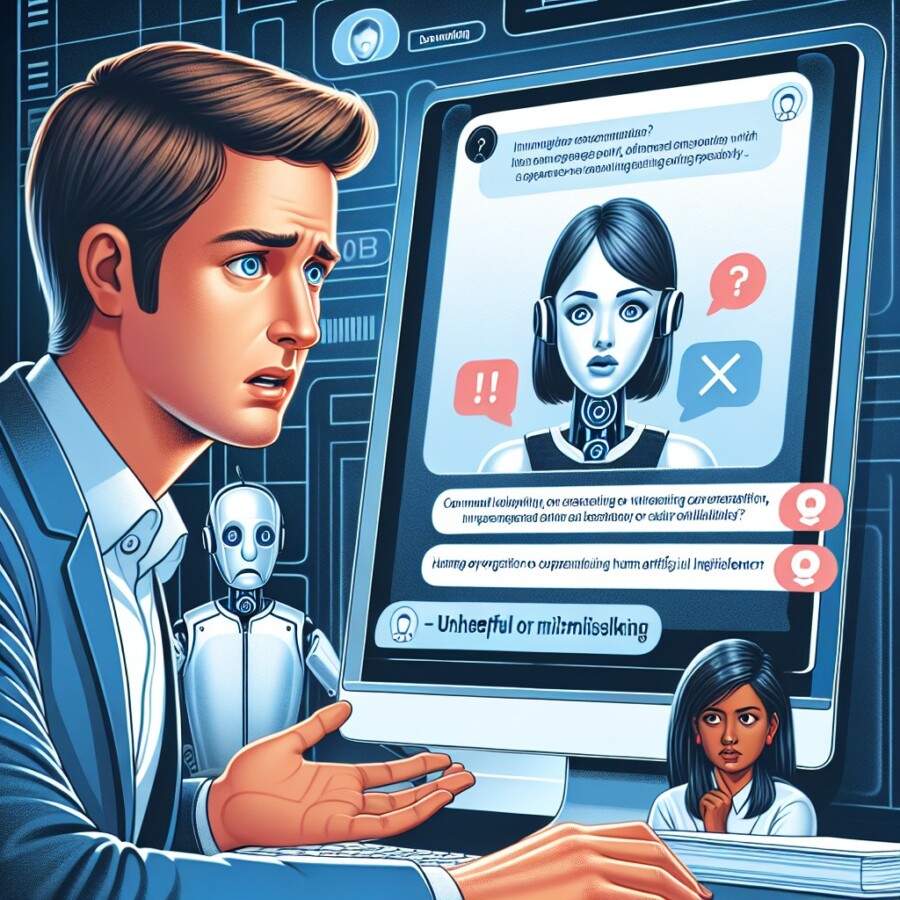There is a lot of trash in the world. The World Bank says that we made about 2.24 billion tons of solid waste in 2020. This number is expected to grow to 3.88 billion tons by 2050. Plastic is a big problem. Between the 1950s and 2015, we made over 8.3 billion tons of plastic waste.
Mikela Druckman is a person who knows a lot about this problem. She started a company called Greyparrot in the UK. Her company has made a computer system that can identify and sort waste. They use cameras and the computer system to watch what kind of waste goes through about 50 waste and recycling sites in Europe.
The computer system is very smart. It can tell what kind of trash it is seeing. It can do this even if the trash is dirty or crushed. The system looks at 32 billion pieces of trash every year. This helps people who manage waste to do their job better. It also helps us understand which materials are hard to recycle.
Mikela hopes that companies will use this data. She wants them to make products that can be used again and again. Troy Swope is a person who is trying to do this. He runs a company called Footprint. They make packaging from plant-based fiber instead of plastic.
There are also other ways to help with the waste problem. A company called Polytag in the UK puts a special tag on plastic bottles. This tag can be seen by a machine but not by people. The machine can count how many bottles are being recycled. This helps companies know if their bottles are really being recycled.
In the future, people might get paid to recycle. The UK government plans to start a program in 2025. They will put special machines in stores. People can put used plastic bottles and cans into these machines. The machines will give them money for each item.
But there are new problems too. One big problem is e-cigarettes. They are hard to recycle and are creating a lot of waste. Ray Parmenter from the Chartered Institute of Waste Management says this is a big problem. He thinks we should not make single-use e-cigarettes in the first place.
In the end, everyone can help solve the waste problem. We can all try to use less stuff.
Original news source: The AI trained to recognise waste for recycling (BBC)
Listen
Slow
Normal
Fast
Group or Classroom Activities
Warm-up Activities:
– ENVIRONMENTAL VOCABULARY BRAINSTORM
Instructions: Start the class by asking students to brainstorm various English words related to the environment, waste, and recycling that they already know or are mentioned in the article. Write all the words on the board and discuss their meanings.
– SENTENCE MAKING
Instructions: Provide students with key vocabulary words from the article, such as “waste,” “recycle,” “plastic,” and “problem.” Have them construct simple sentences using each word.
– ROLE-PLAY ACTIVITY
Instructions: Divide students into pairs and have them role-play a conversation between Mikela Druckman and Troy Swope. They can discuss their companies, the waste problem, and potential solutions.
Comprehension Questions:
1. How much solid waste did we make in 2020?
2. What is the name of the lady who started a company to help with the trash problem?
3. What does Mikela’s company, Greyparrot, do?
4. What is special about the computer system that Greyparrot made?
5. What does Troy Swope’s company, Footprint, make?
6. What does the company Polytag do to help with the waste problem?
7. What is the UK government’s plan to help people recycle more in the future?
8. What is one new problem that is making a lot of waste?
Go to answers ⇩
Listen and Fill in the Gaps:
There is a lot of (1)______ in the world. The World Bank says that we made about 2.24 billion tons of solid waste in 2020. This number is expected to grow to 3.88 billion tons by 2050. (2)______ is a big problem. Between the 1950s and 2015, we made over 8.3 billion tons of plastic waste.
Mikela Druckman is a person who knows a lot about this problem. She started a company called Greyparrot in the UK. Her company has made a computer system that can identify and sort waste. They use cameras and the computer system to watch what kind of waste goes through about 50 waste and recycling sites in (3)______.
The computer system is very smart. It can tell what kind of trash it is seeing. It can do this even if the trash is dirty or crushed. The system looks at 32 billion pieces of trash every year. This helps people who manage waste to do their job better. It also helps us understand which materials are hard to (4)______.
Mikela hopes that companies will use this data. She wants them to make products that can be used again and again. Troy Swope is a person who is trying to do this. He runs a company called Footprint. They make packaging from plant-based fiber instead of plastic.
There are also other ways to help with the waste problem. A company called Polytag in the UK puts a special tag on plastic bottles. This tag can be seen by a machine but not by people. The machine can count how many bottles are being recycled. This helps companies know if their bottles are really being (5)______.
In the future, people might get paid to recycle. The UK government plans to start a program in 2025. They will put special machines in stores. People can put used plastic bottles and cans into these machines. The machines will give them money for each (6)______.
But there are new problems too. One big problem is e-cigarettes. They are hard to recycle and are creating a lot of waste. Ray Parmenter from the Chartered Institute of Waste Management says this is a big problem. He thinks we should not make single-use e-cigarettes in the first (7)______.
In the end, everyone can help solve the waste problem. We can all try to use less stuff.
Go to answers ⇩
Discussion Questions:
Students can ask a partner these questions, or discuss them as a group.
1. Do you think trash is a big problem? Why or why not?
2. Do you know what plastic is? Can you tell me about it?
3. What do you think about the computer system that can tell what kind of trash it sees?
4. Why do you think it is important for the computer system to look at trash?
5. What do you think about making things that can be used again and again?
6. Have you ever seen a machine that can count bottles? How does it work?
7. How would you feel if you got paid to recycle? Would you do it more often?
8. What do you think about the idea of putting special machines in stores to recycle bottles and cans?
9. Do you know what e-cigarettes are? Why do you think they are hard to recycle?
10. What do you think we can do to help solve the waste problem?
11. Have you ever seen a tag on a plastic bottle? What do you think it is for?
12. Do you think it’s a good idea to use plant-based fiber instead of plastic? Why or why not?
13. How do you think a computer can tell what kind of trash it is seeing?
14. Why do you think we make so much trash?
15. What would you do if you were in charge of solving the waste problem?
Individual Activities
Vocabulary Meanings:
Match each word to its meaning.
Words:
1. Trash
2. Waste
3. Recycle
4. Plastic
5. Company
6. Packaging
7. Bottles
8. E-cigarettes
Shuffled Meanings:
A) Things we don’t need anymore and throw away
B) Things we use to wrap or cover other things
C) Using something again instead of throwing it away
D) A group of people who work together to sell things or provide a service
E) Things we drink from, usually made of glass or plastic
F) Things that people smoke, but they use batteries and not fire
G) Things we don’t want or need, and we want to get rid of
H) A type of material that is used to make many things, but it takes a long time to go away when we throw it away.
Go to answers ⇩
Multiple Choice Questions:
1. How much solid waste did we make in 2020?
(a) 3.88 billion tons
(b) 2.24 billion tons
(c) 8.3 billion tons
(d) 50 billion tons
2. What is the name of the company that Mikela Druckman started?
(a) Greyparrot
(b) Footprint
(c) Polytag
(d) World Bank
3. What does the computer system at Greyparrot do?
(a) It counts how many bottles are being recycled.
(b) It makes packaging from plant-based fiber.
(c) It pays people to recycle.
(d) It identifies and sorts waste.
4. What does Troy Swope’s company make packaging from?
(a) Plastic
(b) Metal
(c) Plant-based fiber
(d) Paper
5. What does the company Polytag do to help with the waste problem?
(a) It makes a computer system that sorts waste.
(b) It plans to pay people to recycle.
(c) It puts a special tag on plastic bottles.
(d) It makes packaging from plant-based fiber.
6. What is the UK government planning to do in 2025?
(a) Start a company called Polytag
(b) Start a company called Greyparrot
(c) Start a program to pay people to recycle
(d) Make 3.88 billion tons of solid waste
7. What is a big problem according to Ray Parmenter?
(a) The amount of solid waste we made in 2020
(b) The computer system at Greyparrot
(c) Single-use e-cigarettes
(d) The special tag on plastic bottles
8. What can everyone do to help solve the waste problem?
(a) Start a company like Greyparrot
(b) Use less stuff
(c) Make more solid waste
(d) Make single-use e-cigarettes
Go to answers ⇩
True or False Questions:
1. The World Bank says we made about 1 billion tons of solid waste in 2020.
2. Mikela Druckman started a company called Greyparrot.
3. Greyparrot’s computer system can’t tell what kind of trash it is seeing.
4. Troy Swope runs a company called Footprint.
5. Footprint makes packaging from plastic.
6. A company called Polytag puts a special tag on plastic bottles.
7. The UK government plans to start a program in 2025 where people get paid to recycle.
8. Ray Parmenter thinks we should make more single-use e-cigarettes.
Go to answers ⇩
Write a Summary:
Write a summary of this news article in two sentences.
Writing Questions:
Answer the following questions. Write as much as you can for each answer.
1. How much trash did we make in 2020?
2. What problem does Mikela Druckman’s company help with?
3. How does the computer system know what kind of trash it is seeing?
4. What does Footprint make packaging from?
5. How might people get paid to recycle in the future?
Answers
Comprehension Question Answers:
1. How much solid waste did we make in 2020?
– We made about 2.24 billion tons of solid waste in 2020.
2. What is the name of the lady who started a company to help with the trash problem?
– The lady’s name is Mikela Druckman.
3. What does Mikela’s company, Greyparrot, do?
– Her company has made a computer system that can tell what kind of trash it is seeing.
4. What is special about the computer system that Greyparrot made?
– The computer system can tell what kind of trash it is seeing, even if the trash is dirty or crushed.
5. What does Troy Swope’s company, Footprint, make?
– They make packaging from plants instead of plastic.
6. What does the company Polytag do to help with the waste problem?
– Polytag puts a special tag on plastic bottles so a machine can count how many bottles are being recycled.
7. What is the UK government’s plan to help people recycle more in the future?
– The UK government plans to put special machines in stores that will give people money for recycling plastic bottles and cans.
8. What is one new problem that is making a lot of waste?
– One new problem is e-cigarettes. They are hard to recycle and are making a lot of waste.
Go back to questions ⇧
Listen and Fill in the Gaps Answers:
1. trash
2. Plastic
3. Europe
4. recycle
5. recycled
6. item
7. place
Go back to questions ⇧
Vocabulary Meanings Answers:
1. Trash
Answer: A) Things we don’t need anymore and throw away
2. Waste
Answer: G) Things we don’t want or need, and we want to get rid of
3. Recycle
Answer: C) Using something again instead of throwing it away
4. Plastic
Answer: H) A type of material that is used to make many things, but it takes a long time to go away when we throw it away.
5. Company
Answer: D) A group of people who work together to sell things or provide a service
6. Packaging
Answer: B) Things we use to wrap or cover other things
7. Bottles
Answer: E) Things we drink from, usually made of glass or plastic
8. E-cigarettes
Answer: F) Things that people smoke, but they use batteries and not fire
Go back to questions ⇧
Multiple Choice Answers:
1. How much solid waste did we make in 2020?
Answer: (b) 2.24 billion tons
2. What is the name of the company that Mikela Druckman started?
Answer: (a) Greyparrot
3. What does the computer system at Greyparrot do?
Answer: (d) It identifies and sorts waste.
4. What does Troy Swope’s company make packaging from?
Answer: (c) Plant-based fiber
5. What does the company Polytag do to help with the waste problem?
Answer: (c) It puts a special tag on plastic bottles.
6. What is the UK government planning to do in 2025?
Answer: (c) Start a program to pay people to recycle
7. What is a big problem according to Ray Parmenter?
Answer: (c) Single-use e-cigarettes
8. What can everyone do to help solve the waste problem?
Answer: (b) Use less stuff
Go back to questions ⇧
True or False Answers:
1. The World Bank says we made about 1 billion tons of solid waste in 2020.
Answer: False
2. Mikela Druckman started a company called Greyparrot.
Answer: True
3. Greyparrot’s computer system can’t tell what kind of trash it is seeing.
Answer: False
4. Troy Swope runs a company called Footprint.
Answer: True
5. Footprint makes packaging from plastic.
Answer: False
6. A company called Polytag puts a special tag on plastic bottles.
Answer: True
7. The UK government plans to start a program in 2025 where people get paid to recycle.
Answer: False
8. Ray Parmenter thinks we should make more single-use e-cigarettes.
Answer: False
Go back to questions ⇧



